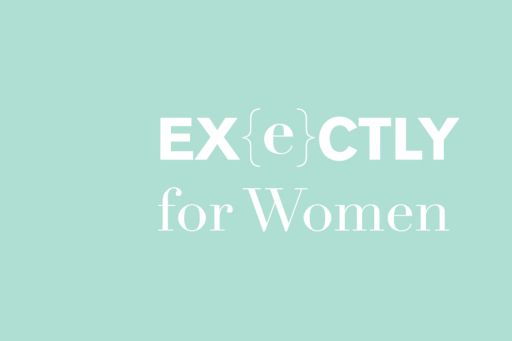Managing through a crisis with purpose
Key takeaways from our Exectly for Women interview with An Vermeersch
6 May 2021
The views and quotes herein are those of Ms. An Vermeersch, shared during the Exectly for Women event on the 6 May 2021, during which we interviewed her to learn about her role in Global Health and how the Covid pandemic has changed her day to day work.
We welcomed An Vermeersch, Vice President and Head of Global Health Vaccines at GSK Vaccines, as our guest speaker. She shared her insights on what her function entails, the impact of the pandemic on her day-to-day job and GSK’s role in COVID-19 vaccines development.
Purpose is increasingly a topic of conversation for companies today
For GSK, it’s embedded in their day-to-day decision-making.
GSK is an international pharmaceutical company and has three global businesses that research, develop and manufacture innovative pharmaceutical medicines, vaccines and consumer healthcare products. Their goal is to be one of the world’s most innovative, best performing and trusted healthcare companies. Their focus on building trust relies on safety, reliable supply and our global health initiatives.
Millions of people live with unmet healthcare needs. GSK wants to help change this, using scientific expertise, partnerships and global reach.
In Global Health, it’s not about making profit; it’s about making an impact.
For their Vaccines division, making an impact through global health means building partnerships with external organizations, such as the Gates Foundation and UNICEF, in order to develop, produce and distribute large volumes of vaccines to developing countries at lowest possible price. It also means working with governments of higher income countries to distribute vaccines at a higher price, in order to recoup (a portion of) the research and development costs. This tiered pricing model allows GSK to set the price of its vaccines based on the Gross National Income (GNI) per capita of a country.
Managing with purpose through a pandemic crisis
When the COVID-19 pandemic struck, for GSK, the objective of their response would not to make profit but about finding a solution.
They started internally – as many companies did – with business continuity management. They set up an “issue management team” to look at everything from managing a workforce from home and keeping their teams motivated and connected, to the larger operational issues, such as how to distribute vaccines with the pandemic impacting air traffic and how to organize clinical trials when participants were reluctant to leave their homes.
Next, they looked at their response to the global health crisis brought on by the pandemic – i.e. how would they develop a vaccine? Would they do it alone or with whom would they partner?
In times of pandemic crisis we need to work together with other vaccine companies, our competitors.
The collaboration between GSK and Sanofi was unique – with two large ‘competitor’ pharmaceutical companies coming together – and it was agreed early on. Lines were drawn about what could and could not be discussed, but on a day-to-day basis the discussions have been happening amongst the experts.
While Pfizer and Moderna both were trying a new technology (mRNA) for the vaccine, GSK and Sanofi decided to use an existing and proven (adjuvanted protein-based) technology. Even though it meant they would be few months behind in entering the market, if the new technology did work, having multiple vaccines based on multiple technologies would help balance the global risk to vaccine development and provide more manufacturing capacity for global supply.
In GSK, we are working with our partners to develop Covid vaccines using existing proven technology. We are also working on the mRNA technology and next generation vaccines. For the next pandemics, having now the mRNA technology validated, it is likely to play an important role.
GSK is also collaborating in another unique way – using their workers and production capacity to produce vaccines for two other manufacturers, while continuing the development of their several candidate vaccines. In addition, they’ve been working with COVAX on how to make available large volumes of the vaccine globally, and they continue to work with them, other partners, and governments to look at how the epidemiology will evolve, the impact of variants, the need for future boosters, etc.
The road ahead
Not learning from a crisis would be a missed opportunity. Reflecting back on this pandemic and looking ahead, some learnings include:
- While mRNA technology is now a proven technology and will provide significant opportunities in some areas, it will probably not be suitable to address all major diseases and other technologies will be needed for example for vaccines that protect against bacteria. It may accelerate some vaccines and offer new solutions for certain diseases, but it also comes with its own challenges.
- The collaboration in this pandemic shows that when there is an urgency, we can move fast. However, while we can learn from this pandemic, when we return to business as usual, the focus will be split across technologies and programs for different vaccines.
- Pharmaceutical companies should continue to work closely with governments to streamline the regulatory process for vaccine approvals, while ensuring safety prevails.
- While individual governments focus on ensuring access to pandemic vaccines for their population, ensuring global access, through a globally coordinated mechanism like COVAX, is equally important.
- In this pandemic it was useful for companies to collaborate and share their knowledge and expertise with one another in order to ramp up capacity faster. However, in normal times, patents help the R&D-based company make a return on their investment and hence help stimulate investments in innovation.
- In the past there was a lot of focus in global health on neglected diseases like malaria and TB and less on pandemic preparedness. Now, the risk becomes that the pendulum swings the other way with more focus on pandemic preparedness and it could be more challenging to partner on neglected diseases.
Everyone will need to make their own personal decision about whether to get the vaccine or not. But for myself – any invite I get, I’ll say yes.
The views and quotes herein are those of Ms. An Vermeersch, shared during her interview at the Exectly for Women event on the 6 May 2021.
An Vermeersch’s career
An Vermeersch has 25 years of experience in the Pharma and Healthcare sector. She began her career at GSK in 1995 before joining McKinsey & Company, Inc as a consultant in 2000. In 2008, she returned to GSK Vaccines where she took on leadership and global roles in R&D, Strategy & Transformation and Governmental & Public Affairs. Since October 2019, An has led GSK Vaccines' newly integrated Global Health department as Vice President, Head of Global Health Vaccines.
An holds a degree in Bioengineering in Microbiology and Biochemistry from the University of Ghent and a Master in Business Administration from Vlerick Business School.
She is a member of the Board of Directors of Gimv since June 2017.
Contact us
If you are interested in joining the Exectly for Women network, please get in touch:
T: +32 2 708 40 66 |
T: +32 3 821 17 32 |
Connect with us
- Find office locations kpmg.findOfficeLocations
- kpmg.emailUs
- Social media @ KPMG kpmg.socialMedia


